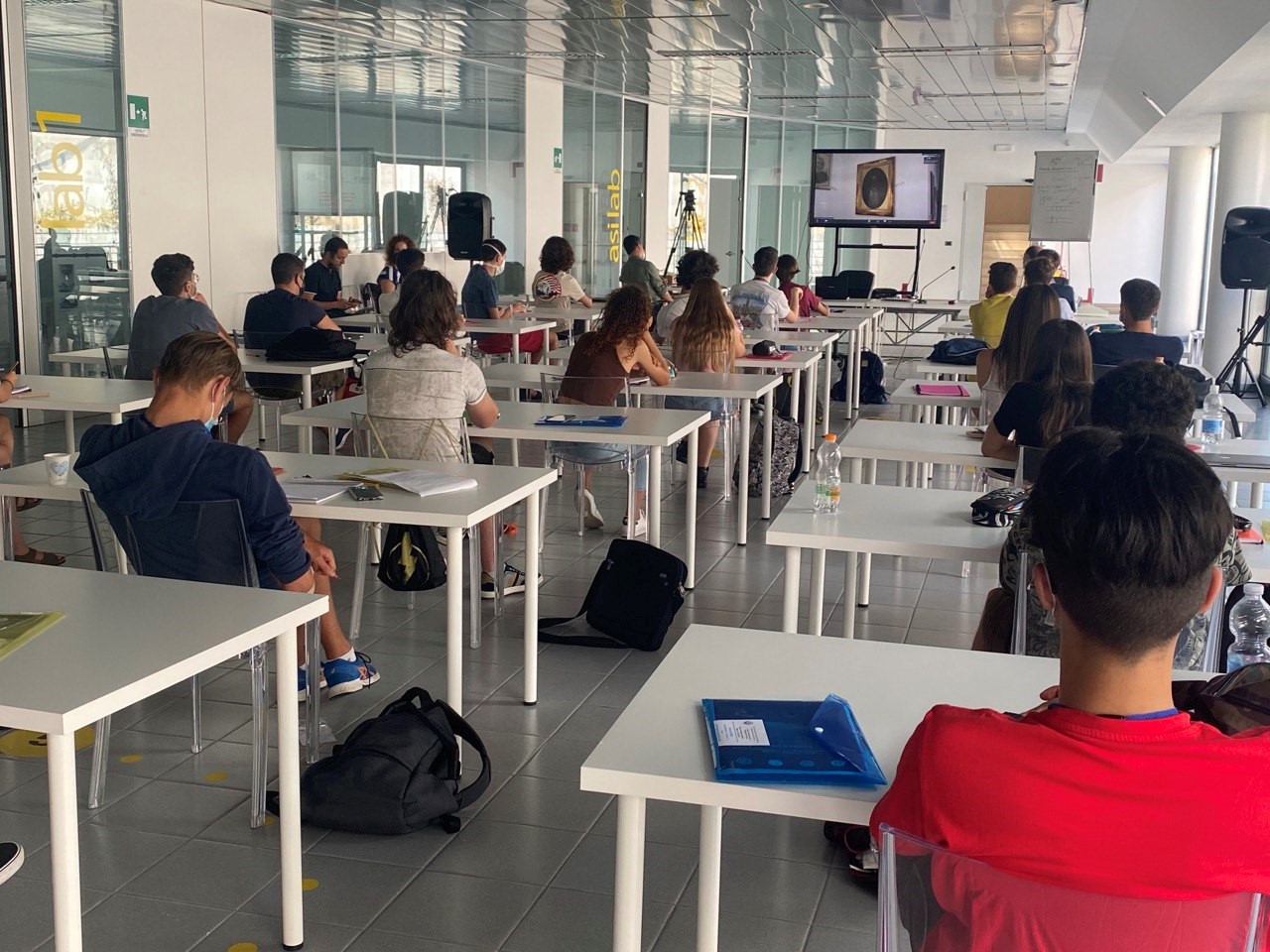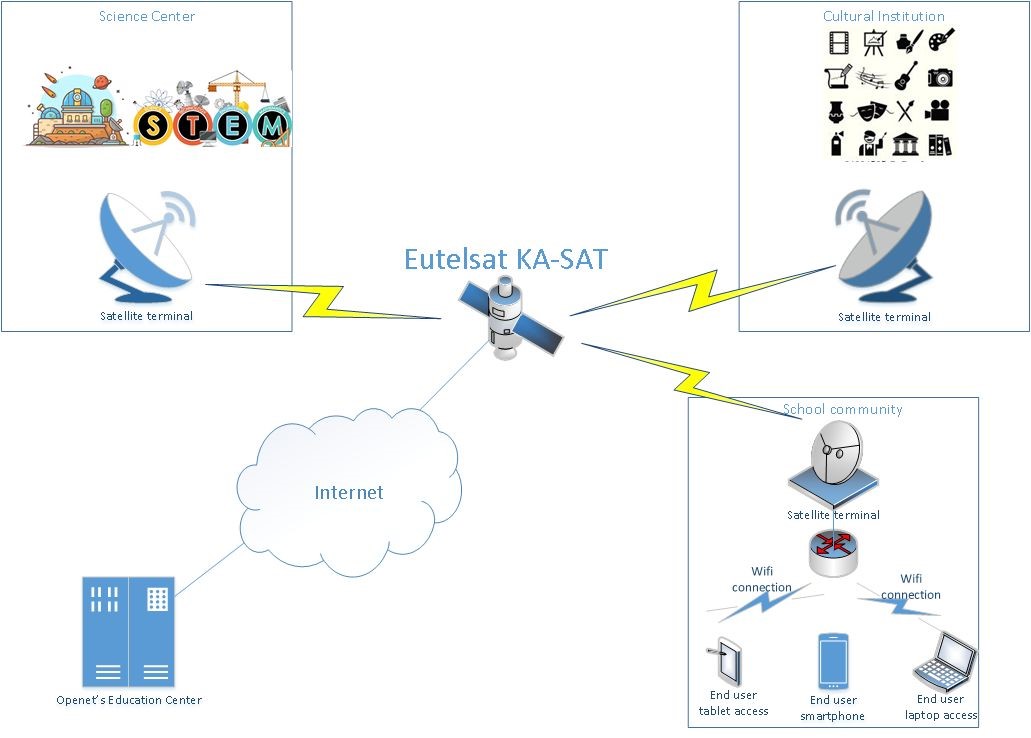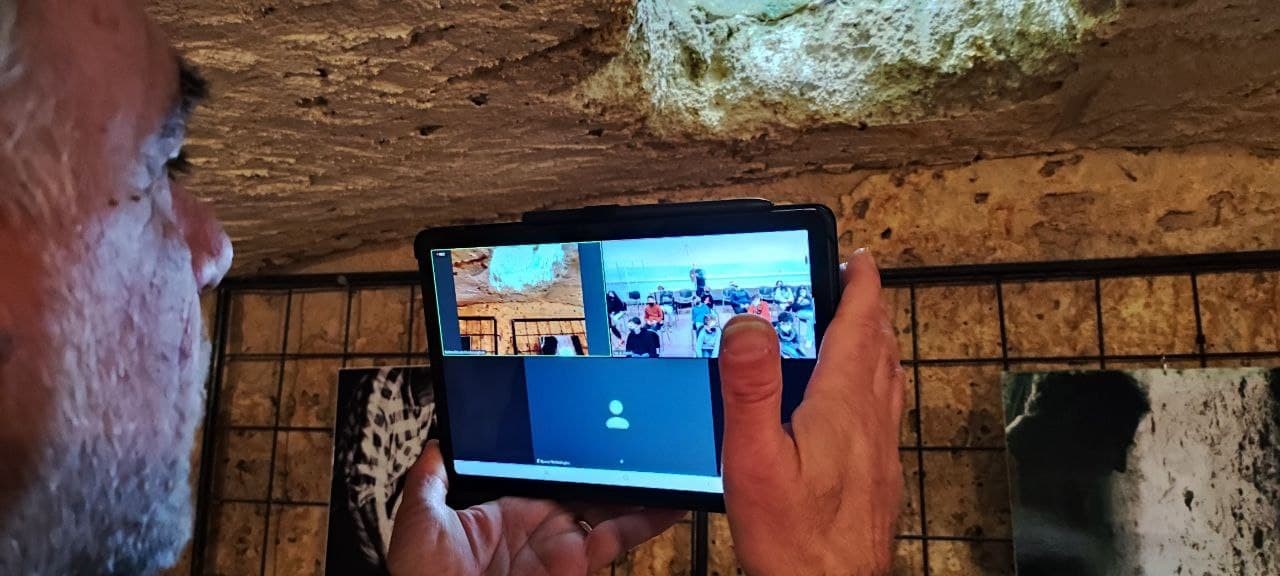
Objectives of the service

The Class@cross project has developed a Satcom based solution aiming at offering an Education Outreach platform accessible from any ICT device in order to enrich the educational opportunities with special regard to the social factors and cultural and scientific contents. The developed service is contributing to extend the range of learning opportunities. Research and scientific centres and cultural institutions are the content providers that integrate the educational and didactic contents developed by teachers, valorising the rich heritage of scientific and cultural contents largely available. Thanks to Class@cross platform, users – located at their own home/schools – access contents “live” going beyond the virtual tour already available on the market and living an effective experience almost as the user was physically present.
Users and their needs
The users targeted by the Class@cross service are represented by school principals, students, teachers, families. They need to:
(Principals)
- guarantee the prosecution of school activities even in lockdown related to COVID-19 pandemic conditions;
- guarantee that the live/virtual proposed solution is accessible and affordable for all (non-discriminatory access)
- facilitate the participation of students facing specific situations (i.e. period of long stay in hospitals, ...) to the education activities
- overcome digital isolation
- enrich the educational path with contents more suitable to overcome the absence of social engagement and aggregation
(Teachers)
- conceive/manage a new didactic model with the use of technology
- manage the virtual class in an easy and traceable way and have access to additional educational contents
(Students)
- feel socially engaged in difficult moments
- participate to entertainment and cultural initiatives
- overcome the limit imposed by the “home stay” living new and fascinating experience
- interact live (e.g. by asking questions) during the virtual visit
(Families)
- be able to guarantee to their pupils the access to advanced and well supported technological solutions for an easy fruition
- stimulate effective social interactions among their pupils during the virtual/live education activities
- satisfy the necessity of social aggregation in particular difficult moments
- sharing fascinating live educational experiences with their children in order to overcome limits imposed by the lockdown and explore the “home edition education”
The pilot users have been located in Italy, but the opportunity offered by the Class@cross service are worldwide.
Service/ system concept
The solution is based on:
- the existing ONE CLASS! Open Network for Education platform https://business.esa.int/projects/one-class-open-network-for-education
- the following new elements:
A) Mobile Application to support the portability of the service and opens the participation and accessibility. User can book the “live” participation to the Education Outreach activities.
B) Education Outreach through live tours/visits within museums, science centres, cultural centres/institutions aiming at bringing culture and science at students’/teachers’ homes, overcoming distances and physical barriers. Whenever needed, Openet’s offer includes the set up of a tv/broadcasting centre within the content provider facility to allow the production of “live” tours and visits that can be customised. Users create a direct link with the researcher, astronomer, cultural experts and enjoy a “live” participation thanks to the satellite technology. A number of virtual events have been implemented, like virtual visit at the solar observatory system through the telescope, visit the planetary, visit the Park of Rocky Churches in Matera, be involved in a school laboratory activity and interact with the teacher, visit the botanic garden. A series of “meet the expert” events have been organised with active participation. The innovative factor offered is represented by the possibility to interact during the tour and start an experience based on the exchange of knowledge with clear benefits in terms of social interaction. Users access high quality broadcast contents thanks to the satellite technology. Schools can virtually recover the educational trips that presumably would have been otherwise skipped due to the lockdown situation and to escape from forced stay at home, accompanying students to travel from home with a “live” participation.

Space Added Value
The satellite technology is used to guarantee high quality content production and distribution. Thanks to the high uplink capacity the audio video educational/cultural/scientific contents are broadcasted in real time through the Class@cross platform to the user community. The uplink satellite terminal operating on KA-SAT 9° East is a full IP-based transport service utilised for multiple purposes: contribution of live video and audio, file transfer, monitoring and surveillance. The transfer of content between the uplink units installed on the stakeholder (one of the content provider location) premises and Openet’s data center premises (where Class@cross platform is hosted) operates in IP using either UDP or TCP/IP Protocols. Typically, the video is encoded in real time by an MPEG encoder at the remote location capable to stream the encoded video content in a Transport Stream over IP. The encoder will stream in RTP/UDP the video content to the public IP address of the Class@cross hosting server.
Current Status

The Final Review has been successfully held on 23 February 2022. Eventually, the Class@cross project has realised n. 16 live sessions with the involvement of n. 337 public users, n. 258 students and n. 18 teachers belonging to n. 14 school classes of the Comprehensive Institute E. Fermi in Matera (IT). Live experiences have been realised with the contributions of the Astronomic Observatory in Capodimonte (Naples – IT) and the Parco della Murgia Materana (Matera – IT).
At the end of this challenging but stimulating project, the initial objectives have been met. The project has demonstrated how the satellite technology can contribute to improving the didactic path through the valorisation of the existing scientific and cultural heritage during the lockdown imposed by the COVID-19 pandemic as well as to enriching the didactic visits school programme beyond periods of emergency.



